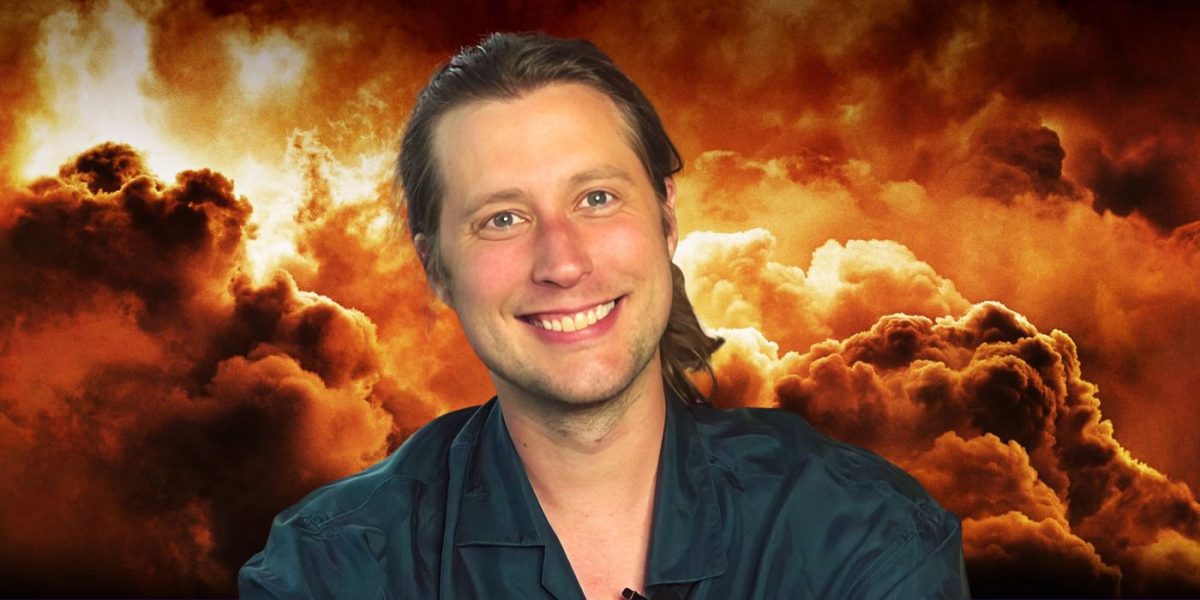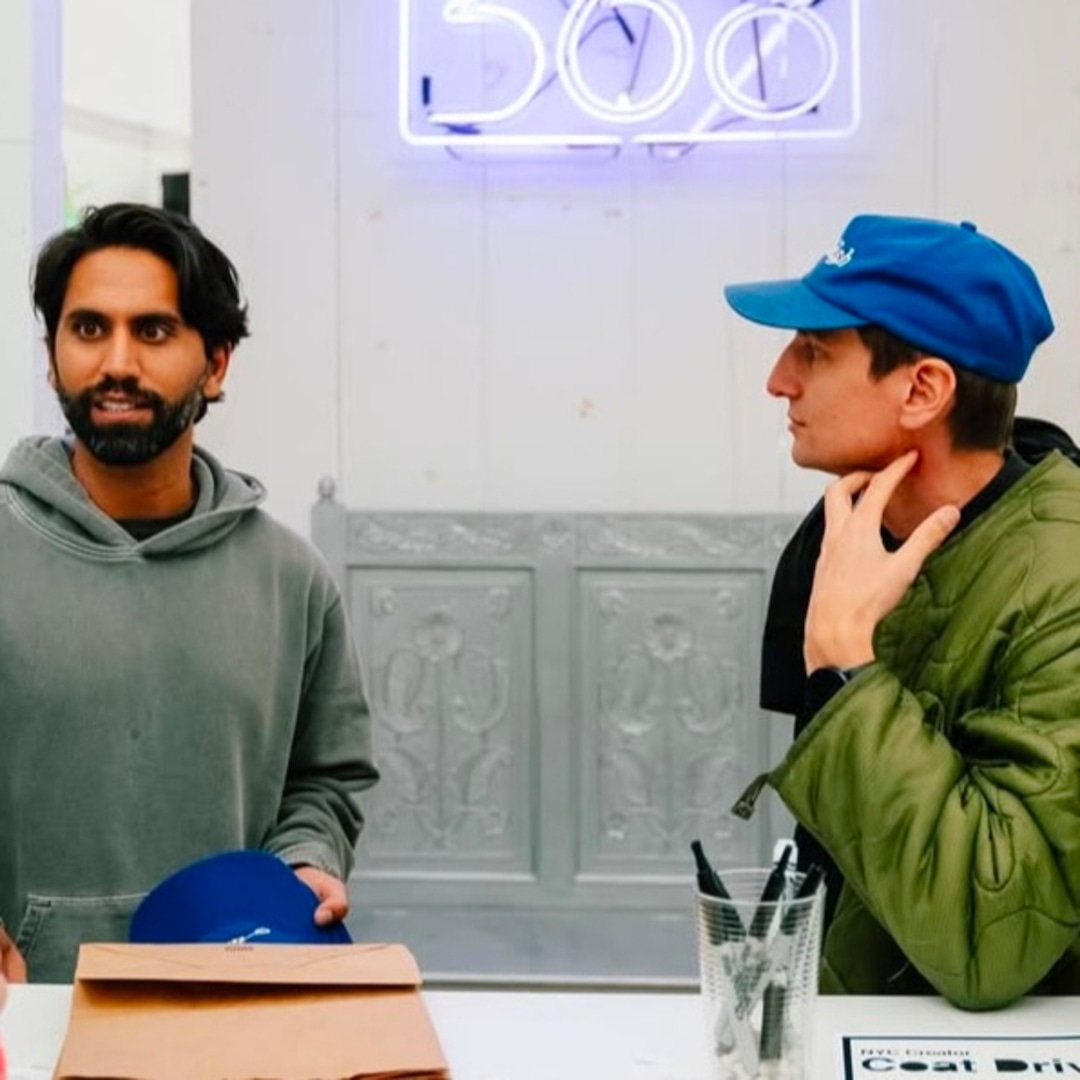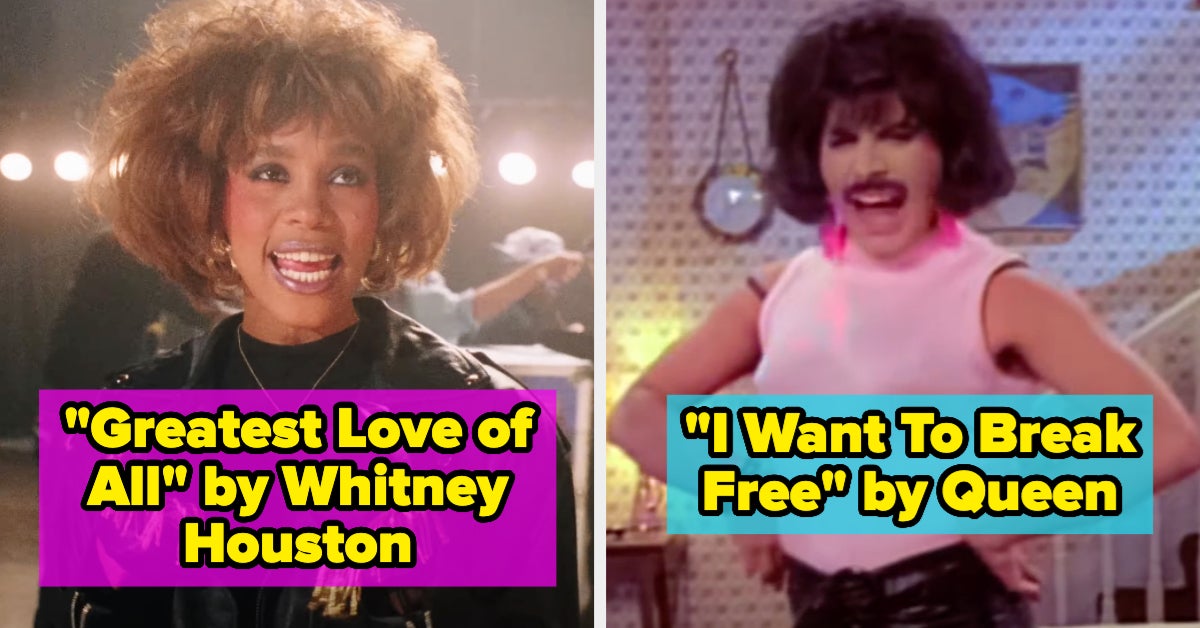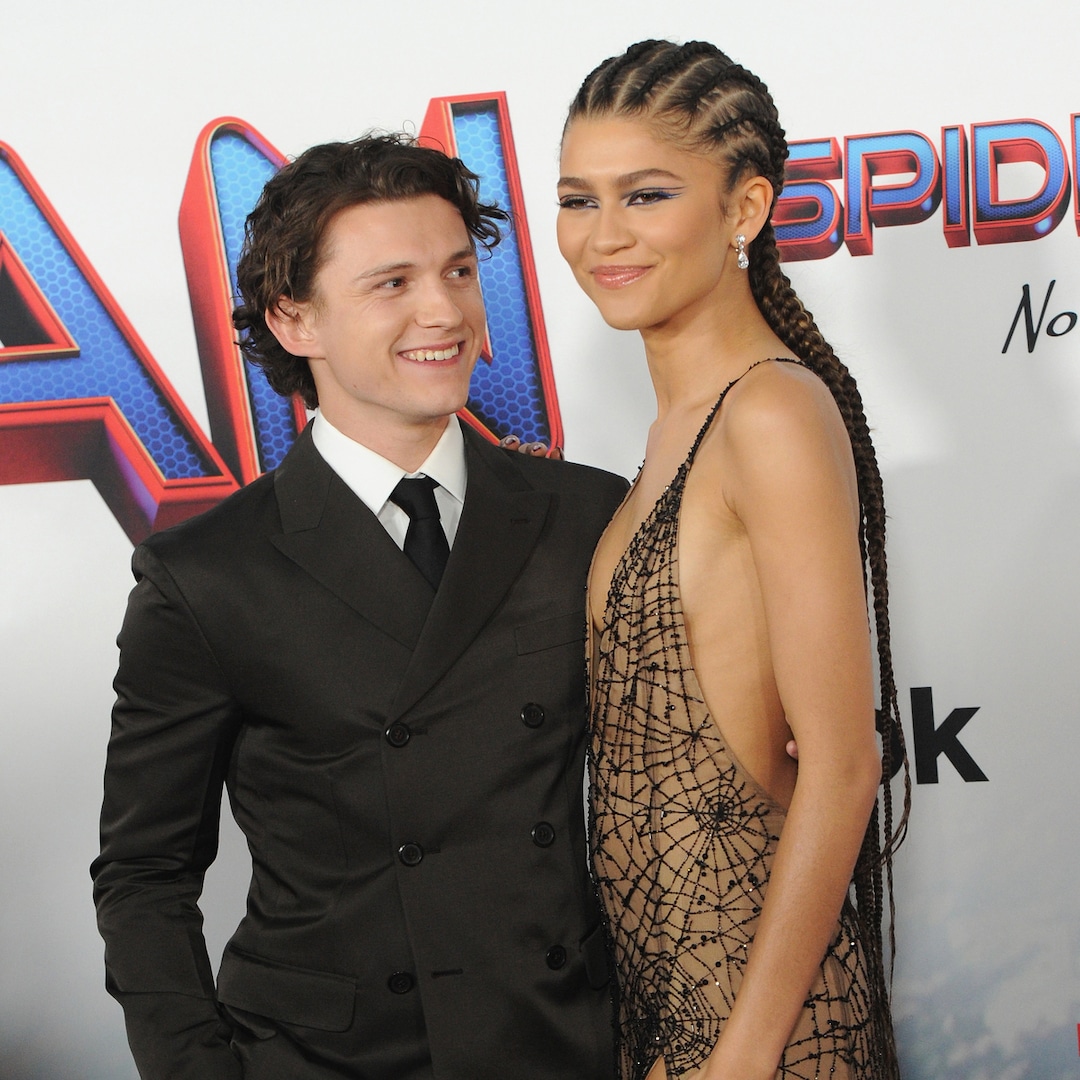
‘Oppenheimer’ Composer Reveals How an IMAX VFX Meeting Influenced the Music
Jul 28, 2023
The Big Picture
Oppenheimer is Christopher Nolan’s latest film, and composer Ludwig Göransson finds it “extremely exciting” to work with Nolan because of the unique way he incorporates music into his movies. Göransson reveals that the visuals of the film influenced the music, particularly the spinning atoms scene, and talks about the challenge of recording a piece with multiple tempo changes in one take. Göransson shares his thoughts on AI in the industry, saying he is interested in using it as a tool but believes it can never replace the artistry and organic feel of human performers. He plans to take some time off after completing Oppenheimer.
With Christopher Nolan’s latest, Oppenheimer, now in theaters and IMAX, Collider’s Steve Weintraub spoke to the film’s composer, Ludwig Göransson (Black Panther), about reuniting with the auteur director for one of this year’s biggest features. Having also previously worked together on Tenet, Göransson tells Weintraub it was “extremely exciting” to get the call for Oppenheimer, not only for the opportunity but because “…the way that he works with music in his movies is incredibly unique. It’s almost like it’s its own characters in his films.”
Oppenheimer is the white-knuckle biopic about physicist Robert. J. Oppenheimer, played by Cillian Murphy in his first-ever leading role with longtime collaborator Nolan. To tell the harrowing account of the man behind the world’s first nuclear weapon, the movie also boasts the talent of Robert Downey Jr., Matt Damon, Emily Blunt, and Florence Pugh.
During their interview, Göransson talks about the process of working with Nolan, from receiving that first call to reading the script and visualizing the music. He tells Weintraub what about the score he learned from the very first read, why violins play such a vital part in the music of Oppenheimer, how the “spellbinding” visuals of the movie played into the music, and why this job was so daunting at first. Göransson also discusses recording the music in under 10 days, what piece proved to be most challenging, and how AI may affect his work in the industry. You can find out all about this and more in the video or transcript below.
COLLIDER: Let me start with congratulations. Oppenheimer is kind of good. [Laughs] Have you seen it in IMAX 70 millimeter?
LUDWIG GÖRANSSON: I saw it in London at the BFI [IMAX], and it was incredible. It was like the first time I saw it on IMAX, and the sound system there was incredible. It was a great experience. I brought my parents with me.
What is it actually like for you, after spending so much time working on the music and just diving deep into a project like this, sitting in a movie theater, especially an IMAX 70-millimeter presentation, and taking it in? When you listen to the music, do you ever hear things where you’re like, “Man, I should have tweaked that. It would have been better like this,” or can you just let go and say, “This is great, it works. I’m so happy?”
GÖRANSSON: No, I definitely let go of that. I let go of that until the last day of the dub, and we’re done. We do everything we can up to that moment. And, you know, I have these great collaborators, and with Chris, we’re on the same page. We feel the same about the music, and we’re finished when we’re done. So, it’s incredibly rewarding for me to sit there in the theater and just enjoy. That’s why I love working on these movies…because it’s always rewarding. You put so much of yourself into this; you put so much of your time and your feelings, and so you want to feel like you get something back, and that’s one of the times when you feel like you’re getting something back, so I love it.
Image via Universal
I have a ton of random questions for you today, so I’m just gonna jump on it. What do you think would surprise people to learn about being a composer in Hollywood?
GÖRANSSON: Well, I think when I was a kid, before jumping into this job, I thought it was gonna be…I had a very romantic image of it, you know. So you’re sitting in your cabin, and you’re writing all this music for yourself, and then it’s done, and you send it somewhere, and then they put it into the movie. And that image is not really how it works out in reality.
Then fortunately for me, I have been able to find these incredible collaborators, so it’s a very respectful job. We’re doing it together, and we push each other. We’re pushing the music forward, we’re pushing the boundaries of the music forward. But, you know, the only thing that’s working against us is time. And a lot of people think that music and time is not, you know… They don’t understand the relationship, that there [are] deadlines, you know.
Yeah, I just spoke to (composer) Daniel [Pemberton] about his work on Ferrari, and he told me he wrote the score in like five days or something crazy because it had to get done. I’m like, “I don’t understand that.”
GÖRANSSON: No, no, I don’t know if I could do that. That seems terrifying.
No, I couldn’t do it. But that’s a whole different thing. You worked with Nolan for the first time on Tenant, what was it like when he called you for not only Tenant but for this and said, “Hey, I have a project, maybe you want to do the music?” What are those calls like?
GÖRANSSON: Well for Tenant, it was incredibly surprising because I never thought that I would get the call like that. But it was also extremely exciting because, I mean, I love everything he’s done with both Hans Zimmer and David Julyan. I was a big fan of those movies and the music, so getting the chance to work with Chris… I think the way that he works with music in his movies is incredibly unique. It’s almost like it’s its own characters in his films, and to be able to get insight [into] his mind and see how that works.
So on Tenet, it was a great experience, and then after Tenet, we kept in contact. We were watching movies, we were talking about film, we were talking about music. But he is also kind of very– He’s also a little secretive. So, he doesn’t talk about, like, “Hey, I’m working on this now,” and so the phone call is about reading scripts, and it always comes out of the blue. So he was like, “Hey, you wanna read the script tomorrow for my new film?” And you had no idea what you’re about to get into, but that’s also the exciting part of it.
Image via Universal
Yeah, I spoke to Matt [Damon] and Emily [Blunt] about how Nolan approached them to be in the movie, and Emily had to read it at his house, and he gave Matt the script for, like, a night so he could read it the next morning. Did he make you go to his house?
GÖRANSSON: For Tenant, I read it at his house. For Oppenheimer, at the office. But it’s very much in person, you know, and I love that.
It has to be weird, though, even for you when you go to the office to read the script and you know that he knows you’re reading it at that time, you know what I mean? Like you’re trying to digest it. Are you one of these people that can read the script and sort of get it all in instantly, or do you like having more time with it to digest it?
GÖRANSSON: Well, I like the instant impression that you get when you see or hear something, or you read or something. Obviously, it’s gonna change with time, but immediately after reading that script, I’d never read anything like it, honestly. You immediately go into his head and into his mind. You’re seeing the world through his eyes, and immediately I understand that that’s what the music needs to feel like. You need to channel that complex, genius personality through so many different spectrums of music, and that’s kind of what I took away from that first read.
Image via Universal
When you are reading it, are you writing down some initial impressions of what you’re feeling so you could sort of remember that when you start composing, or is it sort of just you’re reading it and just taking it in?
GÖRANSSON: No, I’m just taking it in, just like if I would listen or watch something.
I read that when Nolan came to you, he mentioned violin, that that was the instrument that he was thinking about. Do you enjoy that when a director gives you that kind of guidance early on? And then, what was it like thinking about the violin for writing the music?
GÖRANSSON: Yeah, I love that. I love any kind of ideas. And especially the idea of the violin was extremely exciting for me because my wife, Serena Göransson, she’s an incredible violinist, and to be able to work with her and start off going to the studio, and just [experimenting] with the tones of the violin and the vibratos. I think why Chris was so excited about the violin was that it’s a fretless instrument; you can go from being most beautiful, romantic to, in a split second, change into something horrific and manic and neurotic. And to have those channel Oppenheimer’s personality, that was something that we were out for.
Do you ever sneak in references to other scores the way that John Williams can do it?
GÖRANSSON: [Laughs] I don’t think anyone could do it the way John Williams is doing. I don’t actually know the way that he does it, but I don’t do it intentionally. But maybe if you tell me that, “Oh, this sounds like this,” but I don’t do it intentionally, no.
What are some of the sounds and themes that people can look forward to in the music of Oppenheimer?
GÖRANSSON: Well, I think one thing that was unique for this, or a couple of things that were unique for the score, was obviously the strings and the violins, but also the performance of the violins and the strings. One of the first things that Chris showed me was this– I went into a visual effects meeting at the IMAX, and I saw some of the visuals that he had been working on with (VFX supervisor) Andrew Jackson, and you see the spinning of the atoms. That visual to me was just so spellbinding, and I’ve never seen anything like it. And I was like, “That’s how I want the music to sound like.”
It was also kind of scary because, how do I get that music to sound like that? Because I know I wanted to work with tempo and I know I wanted to record it live and play it with musicians, but how to get those tempo increasements increasing like that, doing it in one take, in one flawless take, that was the challenge. And we implemented a new recording technique that I didn’t think was humanly possible to play it, but with this incredible group of musicians, we were able to do all these tempo changes all in one take. You can hear it in the piece that starts with Kenneth Branagh asking Cillian Murphy, like, “Can you hear the music?” And it starts off with this piece of music.
Image via Disney+
I read that you did the recording, and I could be wrong, like in this intense five-day period.
GÖRANSSON: Yeah.
Can you talk about that? Diving in for five straight days or whatever you did?
GÖRANSSON: I think it was five to 10 days of recording, but I think we spent just three days on figuring out how to record this unique piece of music with these tempo changes — 21 tempo changes starting from one tempo and just ending three times faster, and doing it all in one take. I think that human touch of it– First, I was thinking we have to do it in separate chunks but to do it all in one take, they really created that chaos of the spinning atoms.
When I speak to a lot of composers, directors, they always talk about how there’s always something that they continually go back to because they’re not 100% happy. Was there a piece of music in Oppenheimer that you kept going back to because you’re like, “I think I can tweak it a little bit more?”
GÖRANSSON: For us, you know, the last piece that came to place was the music that comes after the bomb because the state that Oppenheimer is in is so complex. You’re seeing these people cheering, but like, what’s he feeling inside? And that took some time, and we worked on that. That was kind of the last piece of the puzzle. But other than that, I think, for the movie you have the first act of the movie, it’s these complex, beautiful, melodic, intimate violins and strings. It starts off with this beautiful, intimate performance, and ends in an opera kind of, and you’re going through that personal growth.
Then there’s the second act of the movie, where all these theories and all these scribbles actually [turn] into an actual product, it turns into a bomb. You see them actually dealing with building it, hoisting it up, and the whole music spectrum and the color and tone of the music changes in that moment from this organic, live instrumentation to just these three sounds of, like, this pumping bass, and then you have this little ticking, like a metallic ticking, and that really propels you to these guys are about to blow themselves up, or they could potentially destroy mankind.
One of the things that’s going on in Hollywood right now, and one of the reasons SAG and WGA are on strike, is AI. I’ve been asking other composers and a lot of people about their thoughts on AI because it can be a tool for good, but it’s also very scary because of what it could mean. When you think of AI, are you scared of it? What’s your take on it and what it could mean for what you do in Hollywood?
GÖRANSSON: I mean, it’s interesting. I haven’t fully started using it yet in whatever I do, but I’m definitely interested in using it as a tool, you know? And I think that’s kind of what the conversation is about — you can use it as a tool, but it would never substitute the artistry of people and the players and the performers. Just like I said when I described the scene, you know, having so many people performing that piece of music created this breath and created this organic sense of chaos and excitement, and it’s filling the room with air. That’s something, when we recorded filling that room with air, that’s something that we’ll never be able to– You can never replace that. So I think, you know, as long as, hopefully, you just use it as a tool for yourself.
Image Via Universal
Totally. My last thing for you, are you working on anything else now, or what’s coming up for you?
GÖRANSSON: No, I mean, right now I’m here, I’m gonna watch a movie in New York tomorrow. I loved working on this movie, and I spent a lot of time into it, and a lot of my effort, and I feel like I learned something. I feel like I’m getting something back from it, and right now, I just wanna—after I’m done—I just wanna enjoy summer, enjoy my time with my kids, and just really take some time. So I don’t have anything down the pipeline. It just has to be the right thing.
Oppenheimer is in theaters now. Check out Collider’s interview with Emily Blunt and Matt Damon below.
Publisher: Source link
Mandy Moore Shares She’s Unsure If Her Home Survived
California Fires: Mandy Moore Shares She's Unsure If Her Home Survived On Tuesday, Mandy shared on her Instagram story that she, her children, and her pets left their home and were safe. "Evacuated and safe with kids, dog and cats.…
Jan 13, 2025
YouTubers Colin, Samir Lose Homes to L.A. Fire as Wives Are Pregnant
Angelina Jolie, Halle Berry, Jamie Lee Curtis & More Stars Are Giving Back Amid LA FiresYouTubers Colin Rosenblum and Samir Chaudry are opening up about their heartbreaking situations. The duo, otherwise known on the platform as Colin and Samir, recently…
Jan 13, 2025
These Are '80s Songs That Gen X'ers And Old Millennials Grew Up On, And There Is No Way Anyone Under 27 Has Heard All Of These
And if you are over 40, then you probably remember when these were brand-new and not songs kids are discovering on TikTok.View Entire Post › Disclaimer: This story is auto-aggregated by a computer program and has not been created or…
Jan 12, 2025
Tom Holland Asked Zendaya’s Dad for Permission Before Proposing
Tom Holland wove the perfect engagement for Zendaya. Less than a week after the Spider-Man actress debuted a 5-carat diamond ring on her left ring finger at the 2025 Golden Globes, Tom's father Dominic Holland confirmed the couple's engagement, sharing a few parts about the special day, including one important detail.…
Jan 12, 2025











